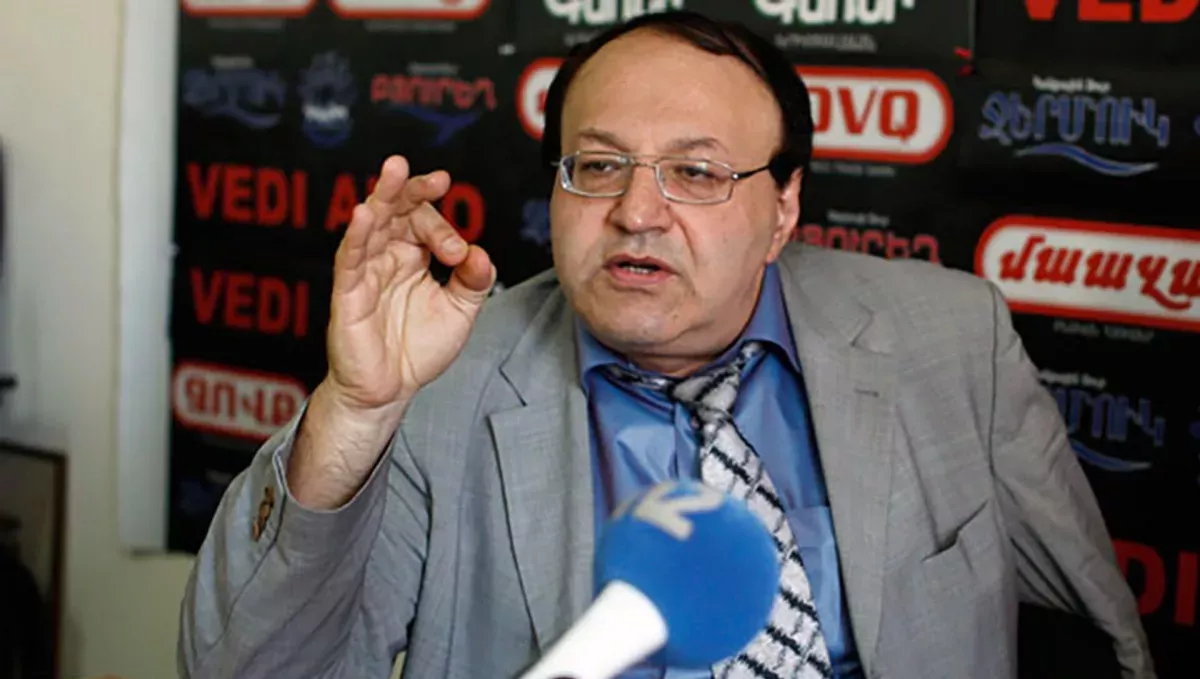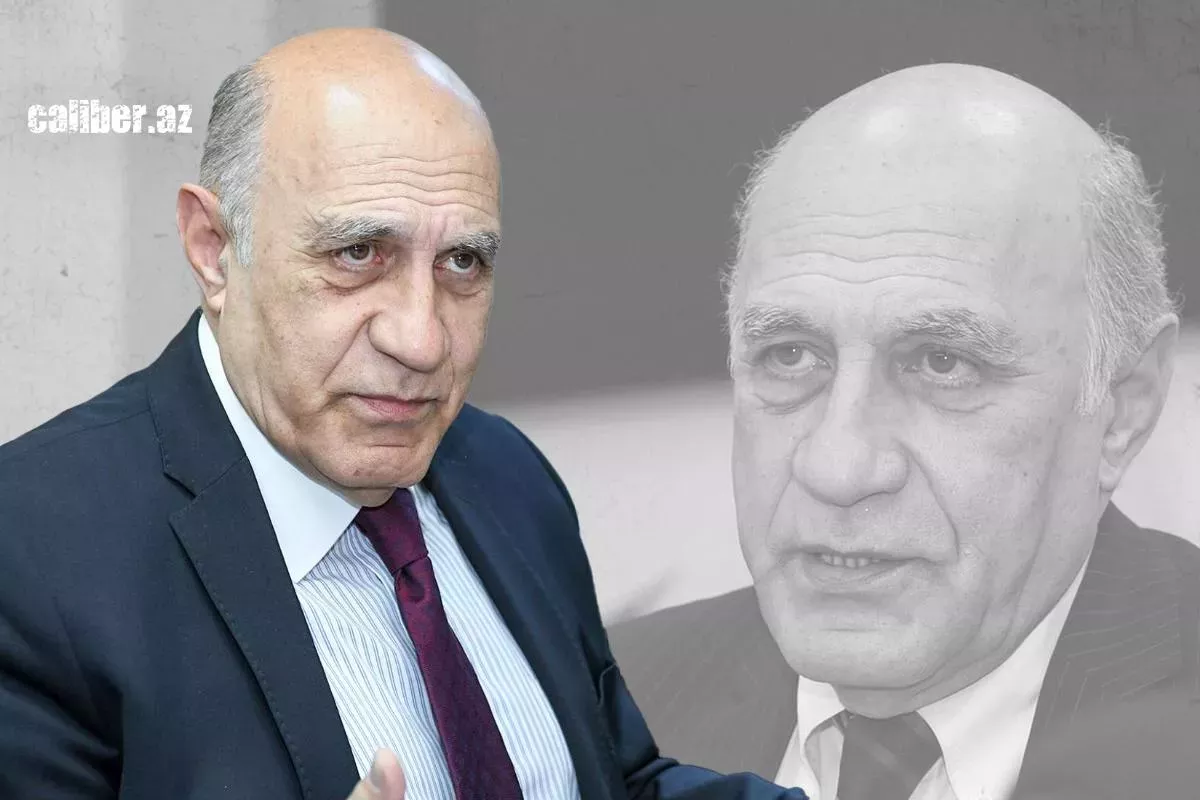Pashinyan’s "strategic deal": Can Azerbaijan and Armenia achieve long-term peace? Experts weigh in
Armenian Prime Minister Nikol Pashinyan has made a statement about the "necessity of concluding a strategic deal" between Armenia and Azerbaijan, which would complement a peace treaty to ensure peaceful coexistence for the coming centuries. He mentioned that he has "some ideas" regarding such a deal.
Pashinyan also noted that Yerevan recently responded to Baku's package of proposals for a peace treaty and sent a written proposal to Azerbaijan regarding the unblocking of regional communications. "There is a high probability that we will find a fully mutually acceptable solution regarding the opening of communications," the prime minister added, emphasizing that just a few days ago, Yerevan responded to Baku's latest package of peace proposals.
"I believe that for long-term peaceful coexistence, Armenia and Azerbaijan need not just a peace treaty or other agreements, but a strategic deal," Pashinyan stated. He pointed out that it is necessary to clearly define "the formulas within which we plan to live as independent states, neighbouring each other for the next 100 years."
Pashinyan also hinted at his concept of future relations, based on the so-called "real Armenia." While the specific details remain undisclosed, the prime minister's statements suggest his intention to radically revise diplomatic approaches, possibly implying a more pragmatic vision for future relations with Azerbaijan.
This new approach could be aimed at creating a sustainable foundation for peaceful relations, considering the complex history of hostility and tension. However, serious questions remain unanswered: What will be the actual content of this strategic deal? Can Baku and Yerevan overcome historical distrust to lay the foundation for peaceful coexistence for decades to come? And, finally, will Yerevan fulfil Baku's just demands, which include removing territorial claims against Azerbaijan from the Armenian constitution and de jure eliminating the OSCE Minsk Group?
Renowned experts shared their insights on the topic with Caliber.Az.

The Chairman of the Union of Political Scientists of Armenia, Doctor of Political Science Hmayak Hovhannisyan, stated that the world is currently in a state of turbulence, and discussing the possibility of planning for the next hundred years under such conditions is certainly a form of naive "dreaming."
"It is impossible to create 'new Armenians' out of some foreign material and encourage them to forget historical Armenia in favour of Nikol Pashinyan's or anyone else's 'real' Armenia. One can turn individual people into mankurts. Large groups of people—entire parties or sects—can be transformed into mankurts, but it is impossible to make an entire nation into a collective mankurt under any circumstances."
He also questioned whether such an aspiration is necessary at all. "Who said that 'old Armenians' and 'old Azerbaijanis' were in constant conflict? I would argue that there was far more goodness, kindness, and humanity in the past relations between our peoples than bad," said the political science doctor.
He noted that people of his generation, with hand on heart, could provide hundreds, even thousands, of examples of brotherly relations between their peoples before the fateful events of 1988.
"Who better than me – the closest ally of Karen Demirchyan in the modern period of Armenian history – to know the full truth about the role of the 'foremen of perestroika' and the special services in stirring up the Armenian-Azerbaijani conflict? Gorbachev and Yakovlev wanted to shake up national issues within the Soviet Union in order to justify the need for a plenary session of the Central Committee of the Communist Party of the Soviet Union on interethnic relations, and during this session, they intended to debunk the 'anti-perestroika myth' that the national question had been resolved in the USSR. In 1993, Oleg Danilovich Kalugin told me in detail how, in 1988, the KGB department under his leadership was tasked with creating the 'Karabakh Committee' in Yerevan and the People's Front in Baku. Later, Gorbachev and Yakovlev decided to bring them to power. In that same fateful year of 1988, the plenums for the appointment of new leaders in Armenia and Azerbaijan were held by political opposites – Alexander Yakovlev and Yegor Ligachyov. Our peoples became victims of this bloody perestroika, which is why I call both the First and Second Karabakh Wars fratricidal. The tragedy of neighbouring peoples condemned to enmity was most deeply understood by their responsible representatives – Karen Demirchyan and Heydar Aliyev, and for this reason, they were so hated by Gorbachev and the other architects of destruction.
Today, in assessing the possibilities of restoring good relations between us, I am not inclined to place my hopes on politicians, on them signing a peace treaty or setting any declaratory goals for the future. The times are such that in politics there is no constancy or stability. I place my hopes in moral authorities, in elders, who, thank God, have not disappeared. It is precisely the elders who should and can lead our peoples to eternal peace," says Hovhannisyan.

As noted by Azerbaijani political scientist and professor at the Western Caspian University, Fikrat Sadikhov, the political twists of Prime Minister Pashinyan are completely illogical.
"I don't think Baku would enter into any deal with the Armenian prime minister, as he suggests. Even if it is strategic, as he believes. What matters to us is the actual treaty between Azerbaijan and Armenia, and Pashinyan is well aware of what it should reflect.
What will happen in the next hundred years, as Pashinyan claims, nobody knows. But signing a peace treaty at least guarantees a certain near-term perspective and creates the foundations for stabilization and security in the South Caucasus region," says the professor.
According to him, if the Armenian prime minister truly aims for a radical revision of diplomatic approaches, and if this leads to peace, creating a mutually acceptable foundation for peaceful coexistence, then this could be agreed upon.
"But for this, Pashinyan needs to elaborate more on his intentions, explain, and make them public, rather than speaking in ambiguous terms. Which, in my opinion, are unclear even to those to whom he is addressing, primarily the Armenian public.
Undoubtedly, we have made progress, and several points of the peace agreement project have taken on a mutually acceptable form. However, there are several points with which the Azerbaijani side will never agree, and Pashinyan knows this well. These include territorial claims against Azerbaijan, which are enshrined in the Armenian constitution. Perhaps this is why Pashinyan is trying to avoid this reality and downplay the difficulties that still exist in the approaches to signing this agreement," suggests Sadikhov.








